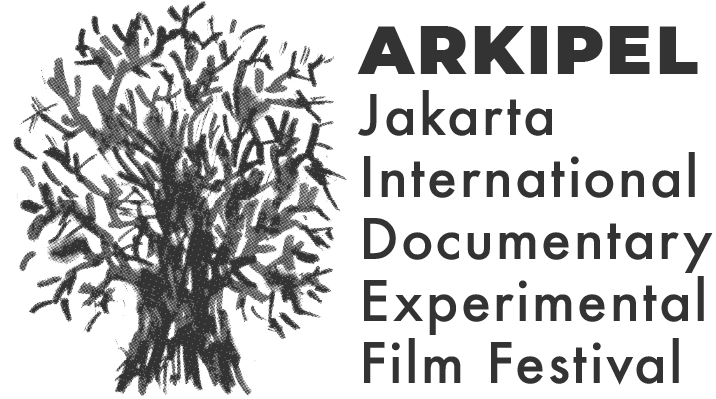curator Bunga Siagian & Afrian Purnama
[divider type=”space” height=”20″ no_border=”1″ /] [accordion auto=”0″][accordion_item title=”Foreword”] [column type=”1/2″ last=”0″ class=””]Asia Selatan Dalam Negosiasi Spasial
Kuratorial ini berbicara tentang bagaimana praktik kolonial selalu meninggalkan ingatan massal dan sikap traumatik pada masyarakat bekas jajahan. Ingatan dan sikap tersebut hadir dalam setiap aksi, baik yang dilakukan oleh negara maupun masyarakat.
Kemerdekaan bangsa terjajah merupakan bentuk urgensi untuk mendefinisikan kembali identitas negara dan nasionalisme bangsa. Proses pendefinisian itu memerlukan suatu negosiasi terhadap narasi besar. Ada kuasa narasi yang memproduksi tipikal identitas bangsa terjajah. Keterdesakan untuk melakukan perluasan makna-makna yang sudah terproduksi bersua jalan melalui literatur, sinema, musik dan aksi lainnya. Negosisasi itu bisa merupakan resistensi ataupun konstruk atas ingatan massa. Resistensi atas pengaruh praktik kolonialisme di suatu wilayah bisa dipandang serupa di wilayah lain. Bahasa Sinema Ketiga, yang dalam hal ini menjadi salah satu aksi dalam negosiasi itu, meluas ke berbagai wilayah jajahan sebagai bentuk negasi terhadap suatu keadaan —bisa diterjemahkan dalam berbagai konteks— terhadap suara-suara minor yang dibungkam, semisal isu-isu kemerdekaan, gender, dan lain sebagainya, baik selama penjajahan maupun pasca penjajahan. Namun, Sinema Ketiga yang disoalkan di sini bukanlah sebatas filem yang diproduksi oleh sineas yang berasal dari negara dunia ketiga, tetapi juga filem-filem yang hadir sebagai respon atas hegemoni kuasa tertentu.
Kuratorial ini mencoba membaca bagaimana sinema melakukan negosiasi spasial pada geokonteks Asia Selatan. Negosiasi tersebut memuat keragaman eksperimentasi. Tidak hanya eksperimentasi konten yang bermain dengan isu-isu konteks, negosiasi juga memiliki eksperimentasi bentuk yang berbeda dengan filem Sinema Ketiga yang bernafaskan resistensi sebagaimana pernah marak di Amerika Latin. Menggunakan politik atas tubuh, artefak, arsitektur, struktur naratif, ketidakstabilan karakter, paradoks suara dan gambar, destruksi teks, melahirkan puspa ragam bahasa sinema yang layak untuk ditelisik dan diberi fokus dalam kuratorial ini.
Faktor terpenting dari empat filem yang dikurasikan adalah bagaimana sinema mampu digunakan untuk merespons kuasa dan warisan kolonial, kebertahanan lokal terhadap kependudukan dan yang terpenting adalah usaha untuk memunculkan kembali identitas lokal yang sebelumnya dicoba untuk ditekan.
Baik ‘Resistensi dalam Ekperimentasi Atas Bentuk’ dan ‘Konstruk Atas Ingatan Massal’ adalah cara kolonialisme dibaca dan bagaimana sineas-sineas tersebut menggunakan pendekatan yang berbeda melawan imperialisme dan warisan-warisannya. Karena warisan-warisan dari penjajah ini pembicaraan atas kolonialisme masih tetap aktual, dan sangat mungkin dibaca lagi dengan sudut yang berbeda juga.
[/column] [column type=”1/2″ last=”1″ class=””]South Asia in Spatial Negotiation
This curatorial discusses about how the colonial practices always leave traumatic collective memories for ex-colonial societies. The memories are present at every action, be it by the state or the people.
Independence of the colonialized countries are a sort of urgency to redefined their national identity and nationalism. The process of redefinition needs such a (re)negotiation toward the grand narratives. There are powerful narratives that produce an identity of a colonialized nation. The urgency to extend these narrative and its meanings intersects through literature, cinema, music, and other form. The negotiation can be a resistance or construction of collective memory. Resistance towards colonialism is shared across geography. The language of Third Cinema, which in this case becomes one of the actions in the negotiations, eventually spread to various colonialized countries are in themselves a form of negation of a condition—can be translated into various contexts: against the suppression of minority’s voices, as an expression of an aspiration towards independence, gender equality, and so forth, be it during colonialism or post-colonialism. Based on the clarity of context that we have suggested, the Third Cinema that is problematized here does not merely refer to films that are produced by Third World filmmakers but any film that responds to certain hegemonic power.
Through this curatorial, we will read how cinema has conducted a spatial negotiation in the geocontext of South Asia. The negotiation suggests a diversity of experimentations, not only in term of content but also in the form that can be different from Third Cinema films which is explicitly radical and resistant. Using body politics, artifacts, architecture, narrative structures, a character instability, sound and image’s paradox, and a text destruction, these works convey the diversity of cinematic languages that is worth to examine and given focus in this program.
The most important element of the four films curated in this section is how cinema has the ability to respond to the power and legacy of colonialism, how it functions as a local survival kit for the people. Most importantly, there is an attempt to bring back local identities that previously were suppressed.
Both ‘The Resistance in Form Experimentations’ and ‘The Contruction of Collective Memories’ are a way to read colonialism and how filmmakers in the program employ different approaches to fight imperialism and its legacy. Thanks to this legacy, discussion about colonialism are still relevant and possibly results in different readings as well.
[/column] [/accordion_item] [accordion_item title=”Films”] [/accordion_item] [/accordion]




